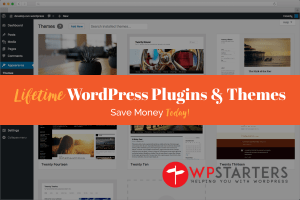The dust just settled on the recent AppSumo ShortPixel deal. ShortPixel was a plugin that I eyed for some time. But I was on KeyCDN’s Optimus and was reluctant to pay monthly for a service that could be marginally better than Optimus. But I was gladly proven wrong by ShortPixel. With their lossy compression, my homepage web page weight was reduced by a massive 59%! We went from 2.4 megabytes to 1 megabyte!
So, should you get ShortPixel and if yes, why? Read on as we bring you through our ShortPixel Review after the break.
ShortPixel Review: Introduction
If you read my previous post on WordCamp Kuala Lumpur 2017, you would have known that we had Cherry Prommawin from Google Search Asia Pacific. Cherry gave a blockbuster talk on the five things we need to look out for to rank well for 2018. And in her presentation, she emphasized on speed.
So what does ShortPixel got to do with site speed? ShortPixel is an image compression service that goes at an affordable $4.99 per month. In WordPress ecosystem, ShortPixel is the most affordable solution out there. But that’s not all. ShortPixel consistent outperforms its more expensive competitors. Many times their images are smaller and with fewer artifacts.
That tells us that ShortPixel has better compression algorithm. But before we delve too deeply into this issue, let us start with the obligatory strengths and weaknesses overview
ShortPixel Review: Strengths
Convenient
While you can skip ShortPixel by mass compressing your images on a desktop app (like JPEGMini on the Mac), ShortPixel makes it convenient for you to compress and go. For bloggers, digital marketers and companies looking to have image compression without the hassle, ShortPixel is the way to go.
In comparison, using a desktop app means you need to have an additional step in your workflow. And on lazy days, you might be tempted to skip compressing your images. Perhaps you might want to play with your cat or just catch up on some Netflix series. Or just sneak into your cosy comforter.
ShortPixel enables you to let image compression happen while you focus on your content. That way you get optimized images that help your SEO and ultimately bring more traffic to your site.
But there are other image compression services you might say. Yes, there are. Let us get to that portion right now.
Affordable
Who are the competitors to ShortPixel? The current players in the WordPress circle are
- ShortPixel
- EWWW Image Optimizer
- TinyPNG
- Imagify
- Kraken.io
- Smush Pro
- Optimus.io
While we will do a detailed comparison of all the image optimisation players in the near future, it is safe to say that ShortPixel comes up as the most affordable player in the market. If you observe in the like-for-like table below on competitors who offer similar plans by optimised images, ShortPixel is way cheaper than EWWW and TinyPNG
[table id=10 /]
On the other hand, there are competitors who charge based on the total size of compressed images. This would be Imagify and Kraken.io.
[table id=11 /]
We still recommend ShortPixel as we are able to automatically resize large images without worrying about quota. This is evident when you consider most stock images comes in large resolutions. Rather than opening Pixelmator or Preview and resizing, I could automatically do the resizing on my backend. This helps me focus on my content production, rather than pinching pennies with regards to my image sizes.

Smush Pro is a mixed bag for me. After all, unless I run a large digital media company, I would not like to pay USD 49.00 per month for the entire suite of WPMUDev products. While it will allow me unlimited image compression and access to all WPMUDev plugins, do I really need them?
Optimus.io is the only service more affordable than ShortPixel. It goes at USD 19 per year for your own projects and USD 99 per year for client projects. We were previously on Optimus.io due to its pricing. But frankly, Optimus.io don’t do lossy compression well.
Thorough Compression
On our end, our page weight went from 2.4MB to 1MB after running my images through ShortPixel. They were previously compressed by Optimus. This brought our loading time down and improved our SEO.
That made me look further. And while we plan to do a thorough comparison soon, research has shown that ShortPixel outperforms its competitors while maintaining your picture quality.
WebP Conversion
In writing this ShortPixel Review, another thing that stood out was ShortPixel’s WebP conversion. If you didn’t know, WebP is the latest standard by Google that allows for smaller lossless and lossy images while maintaining picture quality.
The only ShortPixel competitors that offer WebP conversion are Optimus.io and EWWW. But considering the two factors mentioned above, you won’t go wrong with ShortPixel.
Easy to Use
If you are not IT savvy, you might be worried about the amount of steps you need to take with ShortPixel. But have no fear, with ShortPixel, you just need to set your desired resizing sizes and you are done. Your images will be automatically compressed depending on chosen compression type.
Bulk image resizing works with a click of a button, while your original images are backed up. This is to allow you to restore them if you prefer. Or if you think the lossy compression is not up to your liking.
ShortPixel Review: Weaknesses
Does ShortPixel have any weaknesses? Yes, while I am happy with ShortPixel there are a few things ShortPixel could work on.
Bulk Optimisation Weakness
In doing this ShortPixel review, I found out about ShortPixel’s WebP conversion service. It is free. However, in order to convert my images to the WebP standard, I need to do a bulk optimisation. This would mean running through my already compressed images.
However to ShortPixel’s credit, they will only deduct a credit if there is more than 5% optimisation.
Other than that, I am fully satisfied with ShortPixel.
ShortPixel Review: The Conclusion
We now come to the conclusion of the brief ShortPixel review. Should you purchase a ShortPixel license? Or perhaps the one-time plan? We give ShortPixel a resounding yes for all of the options above. If you run a small blog, you do not need to purchase the monthly plan. Rather, get the one-time plan. For only $9.99, you get ten thousand credits that will last a small to medium blog about six months of solid optimisation.





